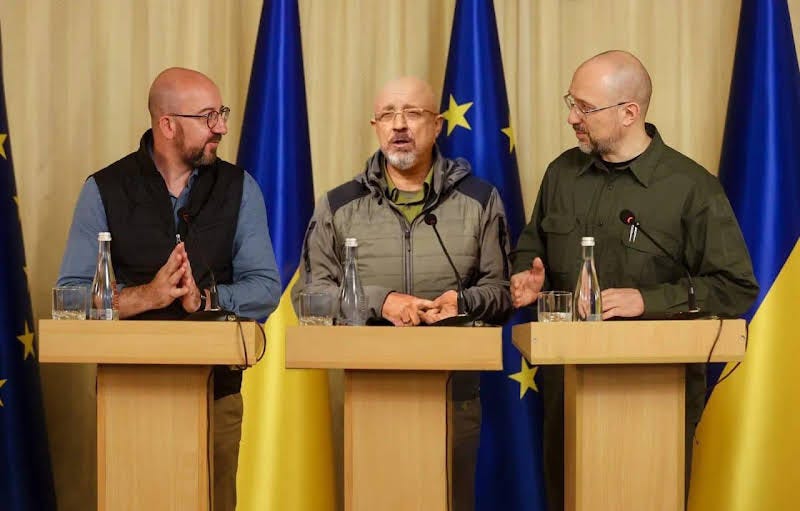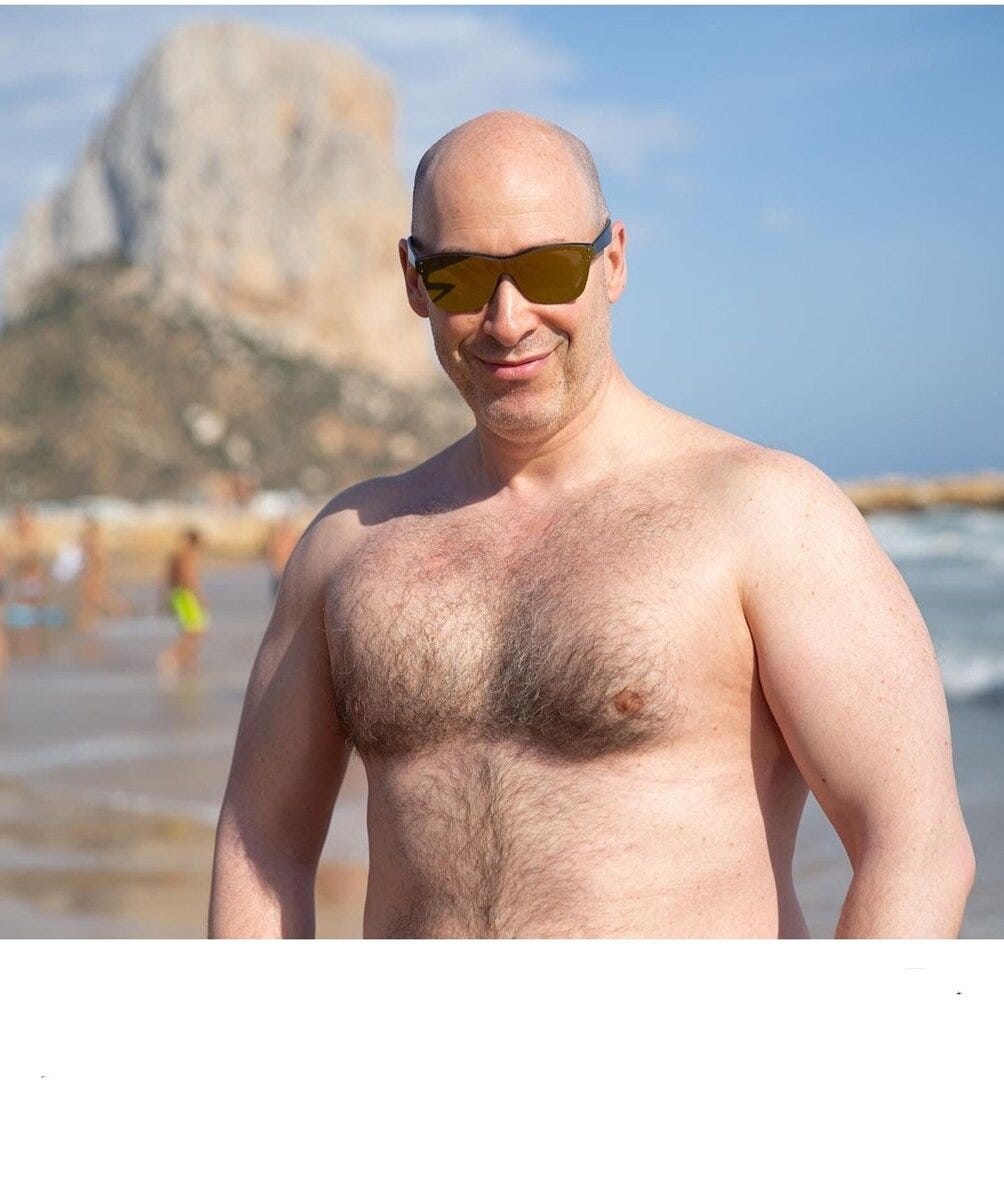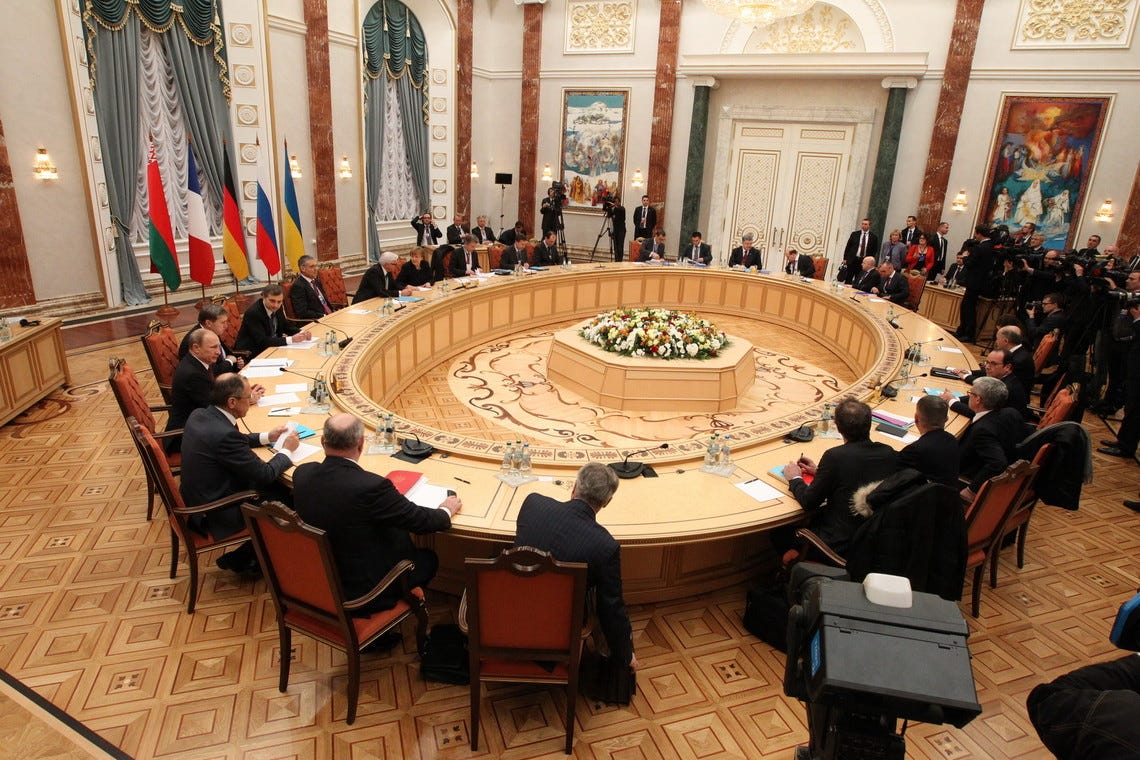"Donbass is a cancerous tumor." How did the scandalous phrase that former president Kravchuk attributed to the writer Oles Gonchar appear?
Translation of a 2021 'Strana' article
June 08, 2021
I chose to translate this article (the strana.ua website was deleted by the Ukrainian government in 2021, and I couldn’t find the original version on wayback machine, but the original Russian text version available on this regional Ukrainian news site) because it is quite relevant to my current series regarding the liberal Ukrainian opposition to the Minsk peace agreements. In these articles, I argue that liberal Ukrainians did not wish to reintegrate the Donbass at all, particularly if that meant giving it any political rights whatsoever. They viewed the population of the Donbass as inherently opposed to economic liberalization and integration into the Euro-atlantic order. This article gives a good genealogy of the idea that ‘Donbass is a cancerous tumor on Ukraine’s healthy body’, a phrase which I also discuss in soon-to-be published articles.
The article is also interesting for another reason. Both Kravchuk and Gonchar were the most privileged of the Soviet Ukrainian elite. Yet they soon became the the most enthusiastic anti-communists and ethnic chauvinists.
Note to the reader:
The Trilateral Contact Group on Ukraine - a negotiation group regarding the resolution of the conflict in Ukraine founded in 8 June 2014 with representatives from Ukraine, Russia, and the OBSCE – EIU
Leonid Kravchuk - the first president of post-soviet Ukraine (1991-1994). In 1989, he had beome Chairman of the Supreme Soviet of the Ukrainian SSR
Oleksiy Reznikov – at various points after 2014, served as Deputy Prime Minister, Minister for Reintegration of the Temporarily Occupied Territories of Ukraine, Deputy Head of the Kyiv City State Administration, and Deputy Mayor of the Kyiv City Council. Defence Minister of Ukriane from 2021 to the present day. Implicated in various corruption scandals while defence minister – in February 2023, the head of the Servant of the People (David Arakhamia) announced that Reznikov would be replaced with Budanov, but this did not occur. Prior to euromaidan, he was a corporate lawyer representing Ukrainian business clans in their dramatic disputes.

Sausage mentality – a slur against post-soviet citizens who value the socio-economic stability of the USSR more than Western democratic values of market freedom. It refers to Soviet sausages, which are often referred to by post-soviet citizens as cheaper and healthier than current food produce. Those who refer to others as having ‘sausage mentality’ are also fond of using the term ‘bydlo’. See my article for more on this term.

Over the weekend, an interview was published with the head of the Kyiv delegation to the Trilateral Contact Group, Leonid Kravchuk. In it, the negotiator compared Donbass with a “cancerous tumor” on the body of Ukraine.
Kravchuk said this not on his own behalf, but referred to the Soviet Ukrainian writer Oles Gonchar. The politician characterizes him as "talented and brilliant."
Previously, our eastern region was called a “tumor” by another politician - Deputy Prime Minister on issues of the temporarily occupied territories, Oleksiy Reznikov. Apparently, also referring to Gonchar, to whom this phrase has long been attributed.
The wording itself is scandalous and can be easily described as hate speech. It adds to the scandal that it is regularly used by people appointed by Zelensky allegedly for the reintegration of Donbass.
At the same time, not only Kravchuk, but also others often referred to Gonchar, quoting this phrase. Moreover, it began after the conflict in the Donbass started in 2014, before which no one had heard of such a quote from the famous writer.
“Strana” figured out what Oles Gonchar actually wrote about Donbass and Crimea. And where did the words about the “cancerous tumor” come from?
“Cut out the cancerous tumor – Donbass”
The other day, Channel 5 aired an interview with Leonid Kravchuk, who heads the Kyiv group of negotiators on Donbass.
Kravchuk told the journalist that he had recently read the diaries of Oles Gonchar. And that he came across the following idea.
“If Ukraine wants to develop as a free state, it must cut off the cancer called Donbass,” Kravchuk said, referring to Gonchar.
The correspondent clarified his opinion, should Donbass be cut off? The politician did not answer. But added: “There was no war then. But, as a talented, brilliant person [Oles Gonchar], he already saw that there would be problems with the Donbass. If we had known this before, perhaps we would have pursued a different policy.”
Then Kravchuk's reasoning slipped into confusion. He obscurely began to explain that “today I can’t say frankly that we don’t need Donbass. We need the people of Donbass.” In fact, he said, the question of what should be done with the Donbass should be put to a referendum.
Leonid Kravchuk is not the first Ukrainian politician who allowed himself to call Donbass a tumor. Before him, the Deputy Prime Minister for issues of the temporarily occupied territories Alexey Reznikov did so.
In November 2020, live on air on the same Channel 5, Reznikov said: “The main thing for us is not to take it back, like an oncological tumor with which we don’t know what to do. But we understand that we have two options. These are sick territories, mentally as well. There is an option of complete resection [surgical removal – EIU), amputation, or cure. I am for therapy and the complete restoration of our body.”
It is obvious that the terminology that Reznikov used was borrowed from the media, where in recent years they have begun to write about the “tumor” more and more often. This topic was saddled by the famous journalist Dmitry Gordon, who in his interviews with well-known politicians often asked whether they agreed with Gonchar's formulation. Gordon's interpretation was as follows:
“Donbass is a cancerous tumor, cut it off, throw it into the mouth of the empire, let it choke, because the metastases will suffocate all of Ukraine! What does Donbass give to our spirituality, our culture? A sausage region and a sausage psychology! A single Ukrainian school - and that one was hunted down ... No, let there be several million less of us, but it will be a nation. We will be able to be reborn, to enter the European civilized family... Otherwise there will never be order. There will be robbery and eternal blackmail.”

At the same time, no one cited where and when Oles Gonchar said this phrase at all.
What Gonchar said about Donbass and Crimea
Before turning to the work and reasoning of Oles Gonchar, we will briefly describe his biography.
He lived from 1918-1995. He went through both communism and the independence of Ukraine. And, it must be said, he was warmly received in both political realities. In the USSR, Gonchar was generally considered a classic of Soviet literature, his works were required for study in the schools of the Ukrainian SSR.
In particular, the novel “Praporonostsi” (“Banners holders”). In this front-line epic, he glorifies the Red Army soldiers who fought against the Nazis.
As a token of gratitude for his work, and being a member of the CPSU(b), and then the CPSU, Oles Gonchar, was awarded high awards:
Two Stalin Prizes of the second degree (1948, 1949),
Lenin Prize (1964),
USSR State Prize (1982)

Gonchar’s traditional Ukrainian costume (‘vyshyvanka’). Nowadays such costumes are commonly worn by politicians as a sign of their nationalist commitment and hatred of Russia. But Gonchar’s pictured vyshyvanka, which he wore during WW2 and is preserved at Kiev’s ‘National Museum of Ukraine’s history in WW2’, features communist red stars and even a St George’s Ribbon - the Russian patriotic symbol which has long been banned in modern Ukraine, and is commonly worn by Donbass separatists.
In the Ukrainian SSR, he held the highest position for a writer - for 12 years he was the head of the Writers' Union of Soviet Ukraine. But after the collapse of the Union, Gonchar supported the independence of Ukraine, began to criticize the Communists, Russia, advocate “de-Russification” and a single state language - Ukrainian.
The post-Soviet views of Oles Gonchar are summarized in his Diaries, particularly the third part, which covers the period after the collapse of the Soviet Union and almost until the death of the writer. They were published in 2004.
We did not find any words about a “cancer tumor” there (although it was Gonchar’s diaries that Kravchuk referred to in a recent interview as the source of this quote). But we found two other references to the Donbass.
The published version of Gonchar's diaries contains an entry from 1993. There, the writer speaks quite unflatteringly about the region and writes that “Donbass is a lumpenized region.”
This was written for a reason – during a large-scale strike in the Donetsk and Luhansk regions in the summer of 1993. It was the largest (before the first Maidan) protest action in the history of Ukraine and greatly shocked the country, significantly changing the political landscape, bringing Donetsk industrialists led by Yefim Zvyagilsky to power in Kiev.
Against this background, in June 1993, Gonchar believed that the Donbass was "provoked and fooled by chauvinists." And with its strike, it did not give coal to the Dnepropetrovsk metallurgists, who risked being left without blast furnaces.

However, two months later, Gonchar took back his words.
“Of course, I made a mistake when I wrote about the ‘lumpenized Donbass’. I watched a program about the Krasnodon miners (who were on strike the longest), and I see that this an exhausted, reasonable and fair people. They were simply driven to despair by the local bureaucracy.”
“Prosecutors build villas, local “chosen ones” shove their snouts in every feeding spot, and they don’t care how the miners live.” He writes that the 40,000 miners in the square are "courageous and honest people."
That is, from this entry it is not particularly noticeable that the writer considers Donbass to be a “cancerous tumor”.
However, Gonchar has fluctuated from negative to positive assessments more than once. So, a year later he writes that Galicia is already “a nation in all respects”, but the writer calls the east of Ukraine “a Russified, deformed field for great spiritual work, a reservoir (and a powerful one) for replenishing national forces.”
As you can see, even if Oles Gonchar is not satisfied with the “Russified” essence of Eastern Ukraine, he calls not to reject it, but to carry out “spiritual work” and draw reserves from there to strengthen the nation.
But with the Crimea in 1994, he proposed to be much tougher.
After Yuriy Meshkov was elected president on the peninsula and the decrees of the President of Ukraine were declared non-recognized, Gonchar suggested turning off the peninsula's water and electricity.

According to the writer, the "chauvinist trash of the empire" is concentrated in Crimea. He voiced the opinion that "Crimea drinks our water, consumes our electricity." He believed that the peninsula had tp pay for resources in foreign currency.
By the way, in 20 years Ukraine would disconnect Crimea from both water and electricity - all according to the precepts of Gonchar.
But where did the phrase "cancer" come from?
The media that referred to this quote often simply referred to the writer's diaries. But some clarified that the necessary quotation was not in their published version - allegedly, some censors removed it before publication (this, in particular, was written by the publication “Young Ukraine”).
At the same time, there are no drafts of Gonchar, where this phrase would be contained. That is, its origin is not documented. Based on this, we can propose two hypotheses.
1. As we see from the real diaries of the writer, he could well have said something like that. This is because he treated the South-East of Ukraine fairly negatively - either calling the inhabitants of Donbass “lumpen”, or calling the Crimeans “chauvinists”.
Thus there is there is a non-zero probability that Oles Gonchar could have said or written somewhere that “Donbass is a cancer”.
2. But so far, the version that this phrase was simply invented seems more likely, since it surfaced only after the start of the conflict in Donbass. Just as the “unpublished” thoughts of Faina Ranevskaya, Mao Zedong, Friedrich Nietzsche and many others appear on social networks every day. True, in the case of the "cancerous tumor" the motives were by no means harmless. The words attributed to Oles Gonchar were used to try to dehumanize the population of Donbass after the start of the war, as well as to justify the need to refuse to implement the political part of the Minsk agreements. That is, to refuse the peaceful reintegration of the region.







This is really good, useful and necessary work. Thank you.